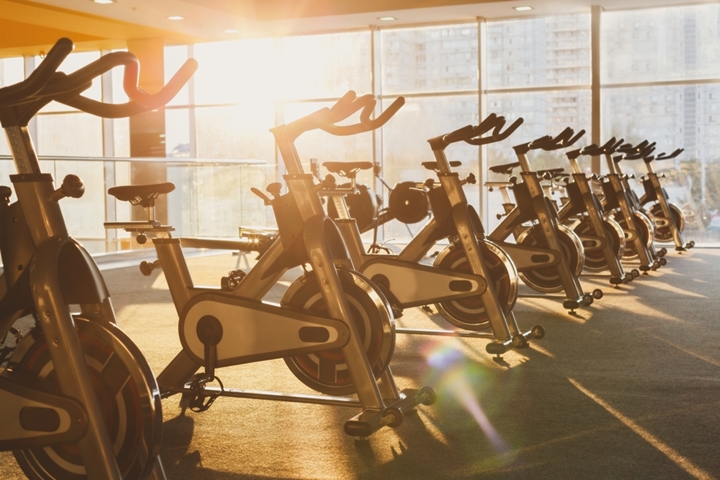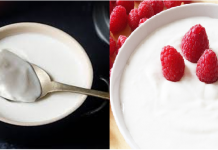Have you been experiencing hunger pangs when you’re not supposed to? Not the ones you have when you’ve just been sweating out it at the gym or after your morning run; those are warranted. We’re talking about the nagging gnaw in the tummy that has you rummaging the fridge too often. Unexplained hunger may sound insignificant in its initial phase, but it shouldn’t go unheeded. When your body isn’t functioning right, it will always send signals to you – the ignorance or misinterpretation of which will lead to hazardous health complications. So, it’s time you stop what you’re doing, pay attention to the signs, address your body’s need, and do what needs to be done.
Appetite is a roller-coaster ride that is run by two hormones: leptin, the appetite-suppressant, and ghrelin, the appetite-stimulant. Poor eating habits and unhealthy lifestyles disrupt their balance leading to frequent hunger and insatiability. Let’s take a look at some of these habits and see how they can be counteracted.
You’re Not Getting Enough Sleep
The less sleep you get, the more you tend to eat throughout the day. Leptin levels sink down, while ghrelin surges. To fight the lethargy and fatigue, you not only tend to eat more but you’re also more inclined to load yourself with high calorie option for quick pick-me-up snacks like cookies, chips, and candy.
Goal: 7-9 hours of undisturbed sleep each night.

You’re Dehydrated
Thirst is often mistaken for hunger. Your body sends hunger signals even when all it needs are fluids. The next time you feel the hunger pangs, drink a glass of water or a cup of green tea or herbal tea (coffee stimulates appetite). Wait for 15-20 minutes. If you’re only dehydrated, the hunger should subside.
Goal: Frequent sips of water between meals ensures hydration.

You’re Loading On Simple Carbs
When simple carbs (found in white, refined flour foods like pastries, doughnuts, and cookies) reach your stomach, there is not much digestion left to do. Sugar is quickly released into the bloodstream and just as quickly removed by insulin. The sudden sugar dip triggers hunger pangs, particularly sugar craving.
Goal: Consume complex carbs with more fiber content like brown rice, almonds, and apples.
You May Also Like: 8 Myths surrounding foods for weight loss busted!
You’re Not Getting Enough Protein And Fat
Protein is a complex nutrient which takes longer to break down during the digestive process, therefore keeping you fuller for longer. Your body also needs healthy fats to increase satiety. Without these two nutrients, you’re bound to the grab-and-go eating habit between meals.
Goal: Include lean protein like Greek Yogurt and monounsaturated fats like avocado in every meal.
You’re Downing Too Much Alcohol
You want to whet your appetite, not increase it to the point that you still want to eat even after you’ve had your fill. Alcohol does the latter. While you keep refilling your glass of wine, you also refill your plate. Besides, boozing dehydrates you, tricking you into thinking you need food when all you need is water.
Goal: Eat a little before boozing and alternate every glass of alcohol with a glass of water.

You’re A Stress Eater
Stress has a sneaky voice encouraging you to eat when you don’t need to. When you’re stressed, your adrenaline and cortisol levels ramp up in your system, bringing the body into a defensive mode. Your body thinks it needs energy to fend off this ‘attack’, and so signals you with hunger pangs.
Goal: Practice meditation or try yoga to fight off stress and get your mind off food.

You’re Addicted To Food Networks
Following food networks on television and social media, and your feeds are overflowing with food-gasmic photos and recipe ideas. No wonder your mouth is constantly salivating! The saying, “We eat with our eyes” is actually backed by science. Ghrelin levels crank up just by looking and smelling food!
Goal: Limit your exposure to food porn. Read a book in between meals or take a walk instead.
You May Also Like: Myths And Facts About Dieting
You’re Not Eating Enough Or Soon Enough
Skipping meals (especially breakfast) and waiting too long between meals is bound to get your appetite-controlling hormones all riled up. If you keep this up, sooner or later you’ll find yourself predisposed to binging. Eating on time helps your body recognize hunger and satiety cues for what they are.
Goal: Prioritize breakfast. Maintain a gap of four to five hours in between meals.

A fit and healthy lifestyle is all about making smart choices. It’s not about not having any issues, but about pinpointing the problem and taking action to uproot it. Make the smart choice today. Learn. Act. Commit! Found this article interesting? Don’t forget to like and share. Share your thoughts with us in the comments section below.


 Traqade
Traqade































This article makes a lot of sense — especially the part about stress and habits leading to constant hunger. I’ve noticed that when I’m bored or anxious, I also end up snacking too much. Lately, instead of reaching for food, I’ve been spending some time on platforms like https://carzytime.net/baji/. It’s actually a solid online casino that works smoothly, even on mobile, and it feels more productive than just standing in front of the fridge. The variety of games is surprisingly good, so you get that rush of excitement without needing to overeat. I like that it’s reliable and the payments don’t take ages, which makes the experience stress-free. In a way, finding entertainment like this can really help redirect energy and keep unnecessary cravings under control.
famous athletes who used steroids
References:
gitea.irons.nz
Hey, das ist ein echt interessanter Artikel, gerade wie sehr unser Körper auf Schlaf, Stress und Ernährung reagiert – hab mich beim Lesen total wiedererkannt. Neulich hatte ich auch so einen Moment, wo alles durcheinander war und ich einfach mal abschalten wollte, da hab ich capospin casino ausprobiert. Für Spieler aus Deutschland gibt es dort spezielle Boni, und das kurze Spielen hat mir geholfen, den Kopf frei zu bekommen. Nach ein paar Runden kam sogar ein kleiner Gewinn, und danach konnte ich viel entspannter an meine eigenen Routinen und gesündere Mahlzeiten denken.